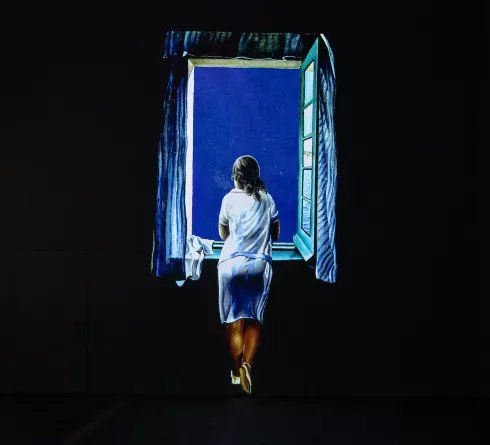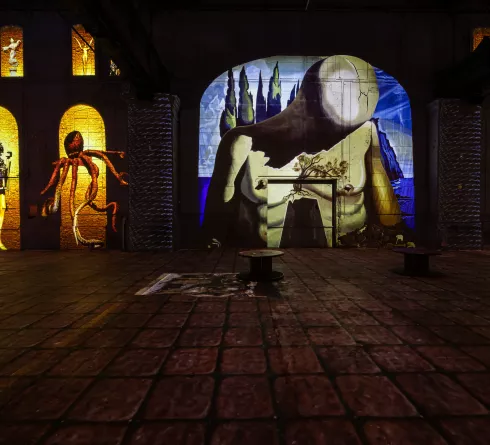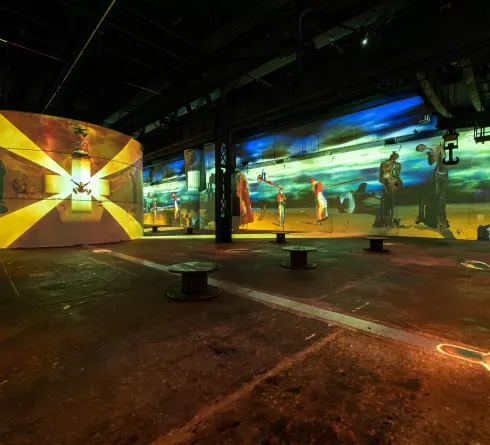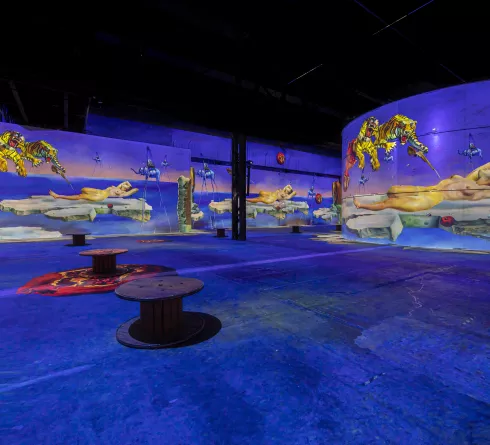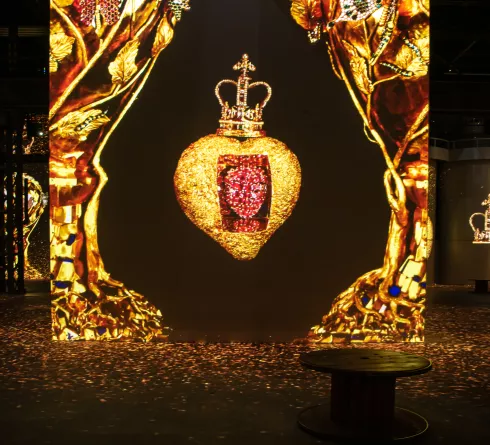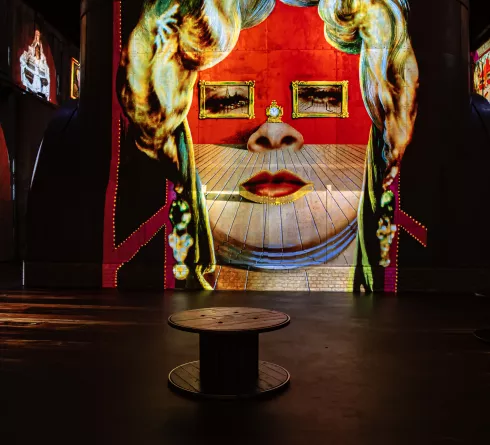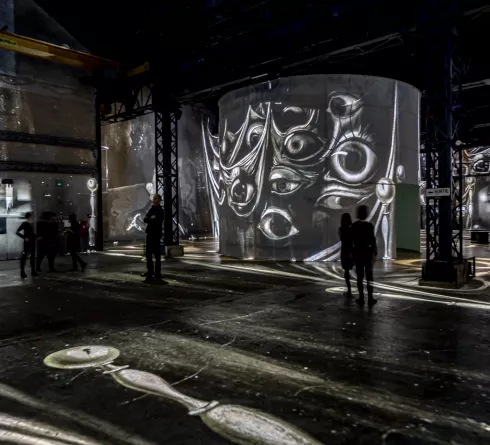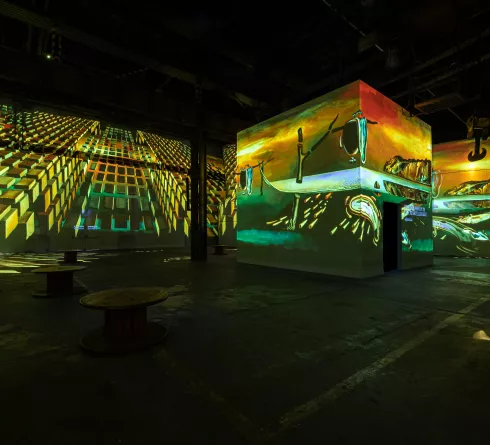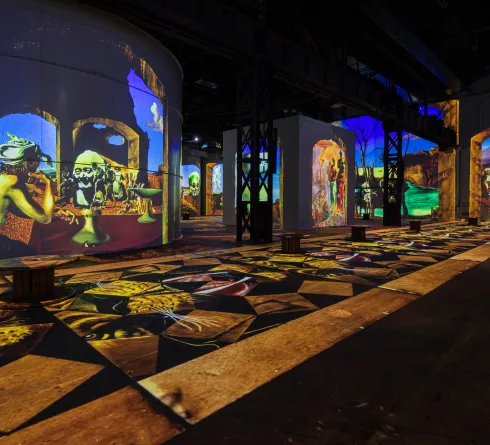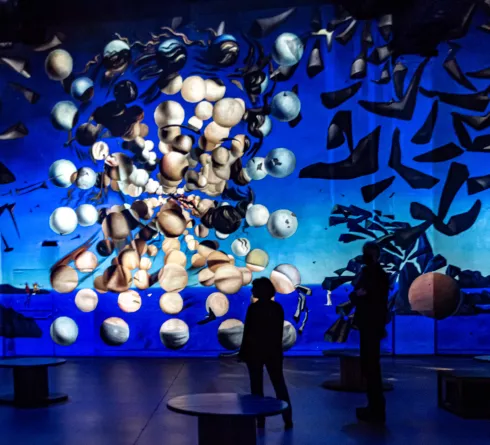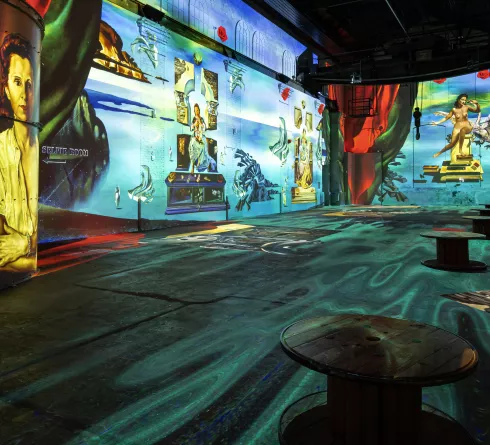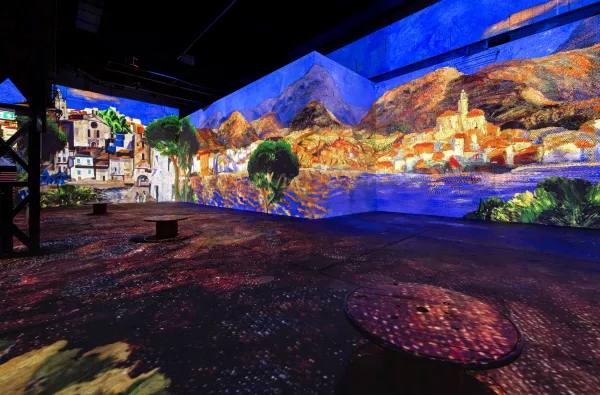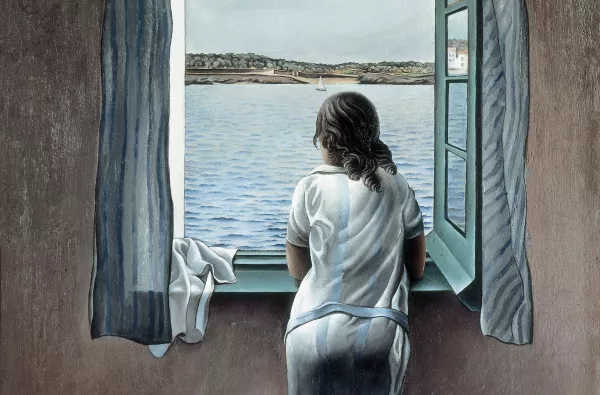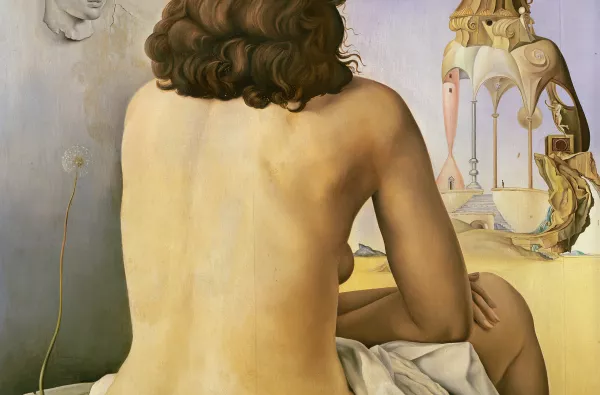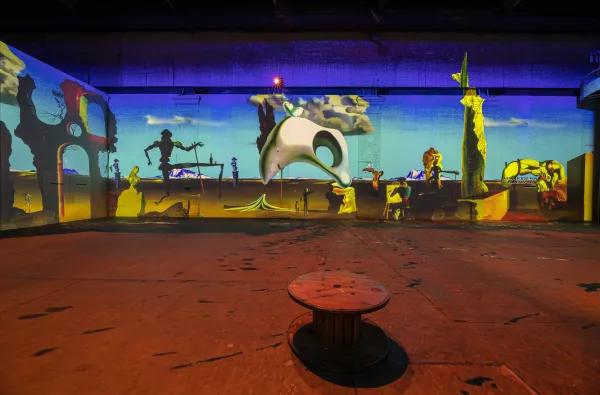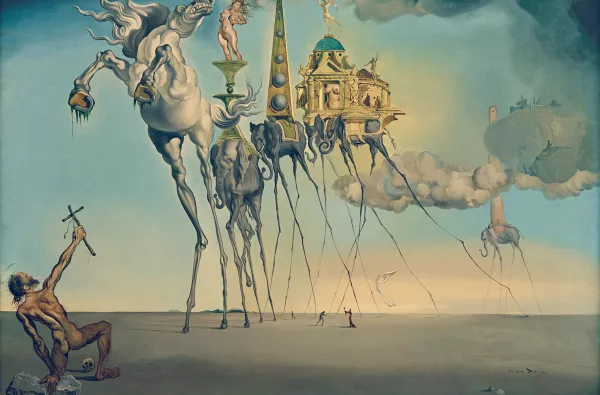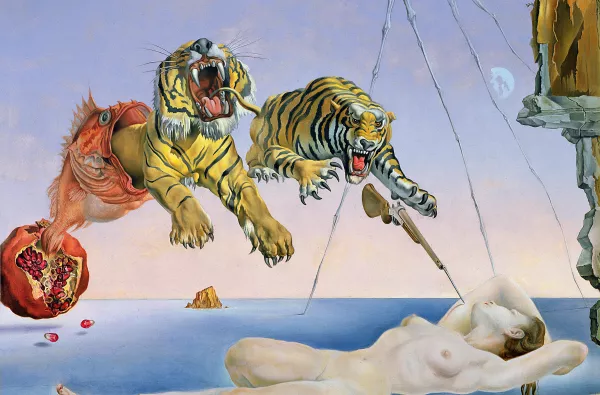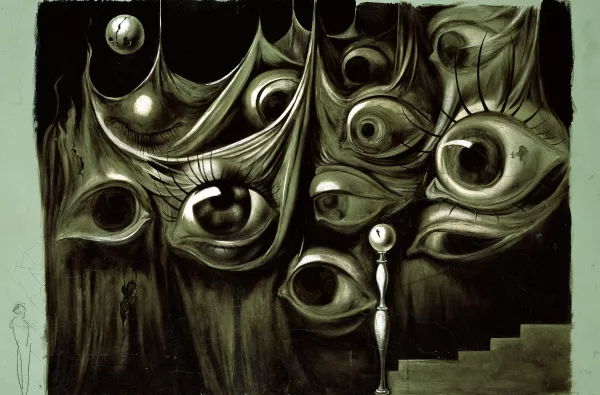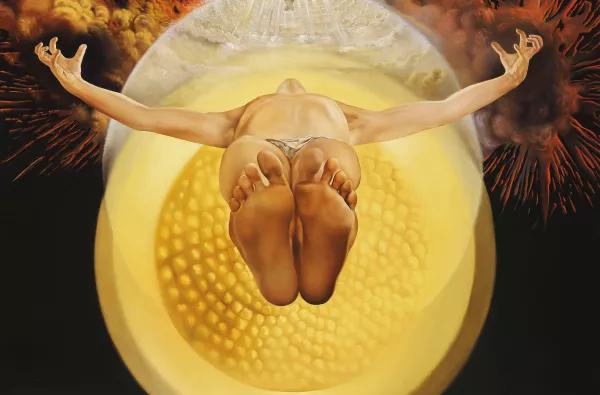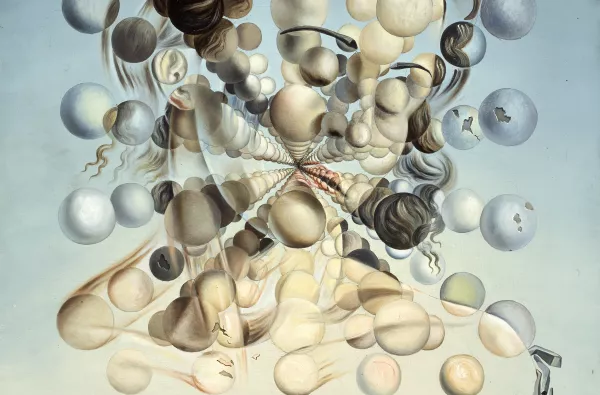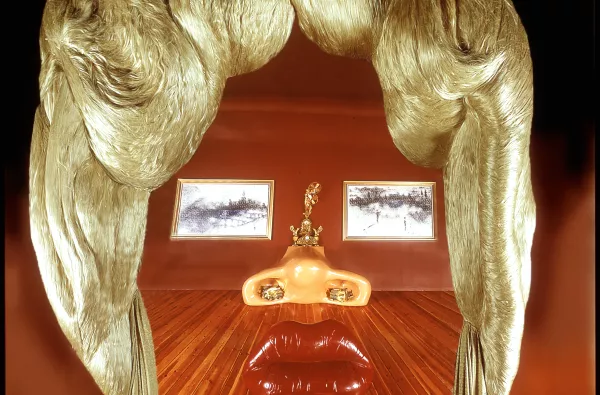About the exhibition Dalí
Listen to the exhibition playlist
Key Works
Click on an artwork to find out more
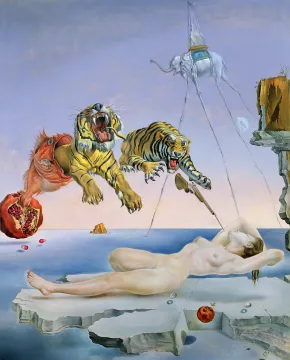
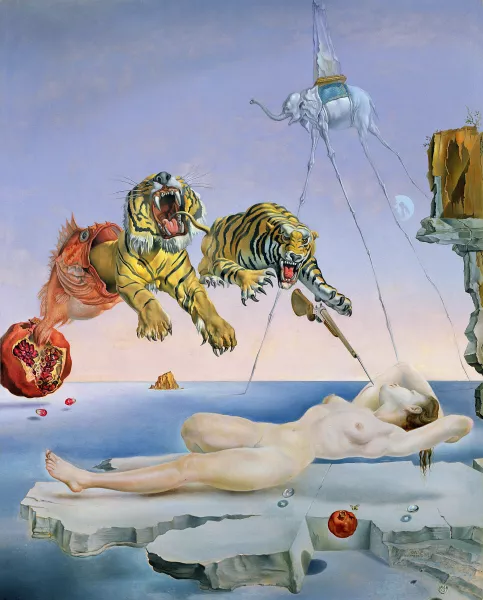
Dream Caused by the Flight of a Bee Around a Pomegranate a Second Before Awakening
This oil painting is one of Dalí's most famous works. He painted it in 1944 during his exile in the USA. Dalí was busy with his activities in the fashion, film and theatre industries and neglected painting. This is why this painting, one of the few from this period, is so important. The work deals directly with the theme of the dream, although the sensibility is still very surrealistic. It shows the landscape of Port-Lligat, but also two pomegranates, a huge dragon's head, two tigers, a rifle with a bayonet, a bee and an elephant with long insect legs! All these elements are part of Gala's dream, whose statue-like body floats in space.
Dream Caused by the Flight of a Bee Around a Pomegranate a Second Before Awakening
Salvador Dalí , Around 1944 , Oil on wood , 51 x 41 cm , Museo Nacional Thyssen-Bornemisza, Madrid , © Salvador Dalí, Fundació Gala-Salvador Dalí, ADAGP 2023
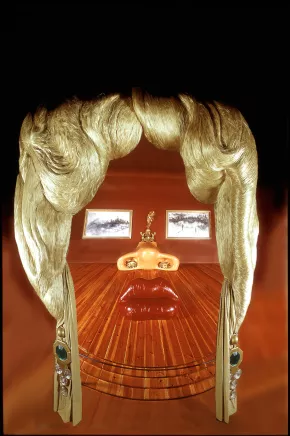
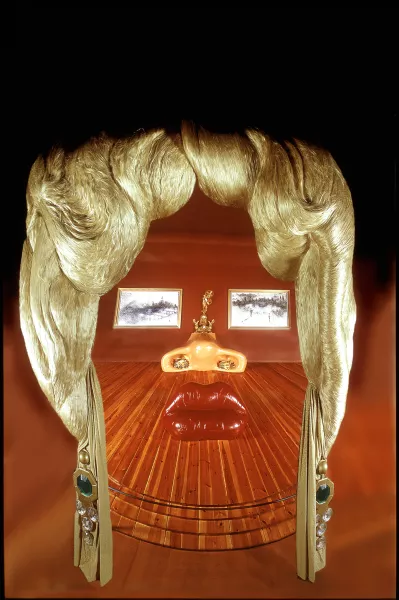
Mae West's Face which May be Used as a Surrealist Apartment
Fascinated by the scandalous actress Mae West, Salvador Dalí dedicated an entire room to her in his museum theatre in Figueras. He took a portrait of her that he had painted in the 1930s and transformed it into a real flat. The eyes? Two paintings hanging on the wall. The nose is a large, two-burner fireplace and the mouth is a sofa in the same red colour as the actress's lips. Her blonde hair becomes a curtain framing the door. Three low steps frame the rounded floor, like three necklaces. To make the illusion perfect, you have to look at it through a large magnifying glass.
Mae West's Face which May be Used as a Surrealist Apartment
Salvador Dalí , Around1974 , 50,2 x 76 x 58,7 m , Gala-Salvador Dalí Foundation, Figueres , © Salvador Dalí, Fundació Gala-Salvador Dalí, ADAGP 2023
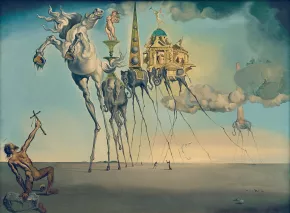
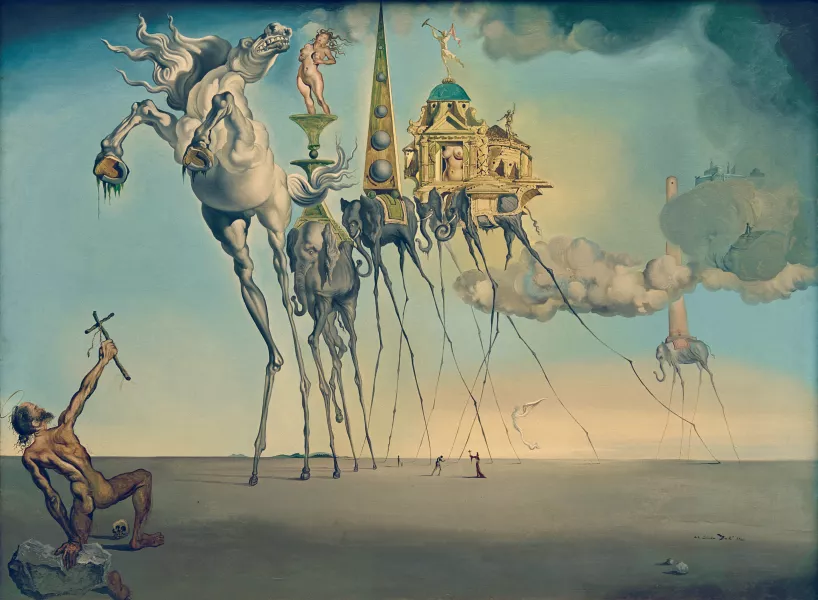
The Temptation of St. Anthony
St Anthony was a monk from the 3rd century who withdrew further and further into the Egyptian desert in order to isolate himself. He never succumbed to the temptations sent by the devil to dissuade him from his faith. Dalí's painting completely breaks with the more than fifteen centuries in which the saint has been depicted. He places him in a corner of the picture, naked, which had never been seen before. With one hand, the saint leans on a stone and with the other he swings a crucifix towards the fantastic creatures above him. This baroque caravan moves through a vast desert, typical of Dalí's landscapes.
The Temptation of St. Anthony
Salvador Dalí , 1946 , Oil on canvas , 89,5 x 119,5 cm , Musées Royaux des Beaux-Arts de Belgique, Brüssel , akg-images , © Salvador Dalí, Fundació Gala-Salvador Dalí, ADAGP 2023
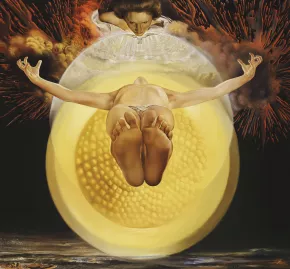
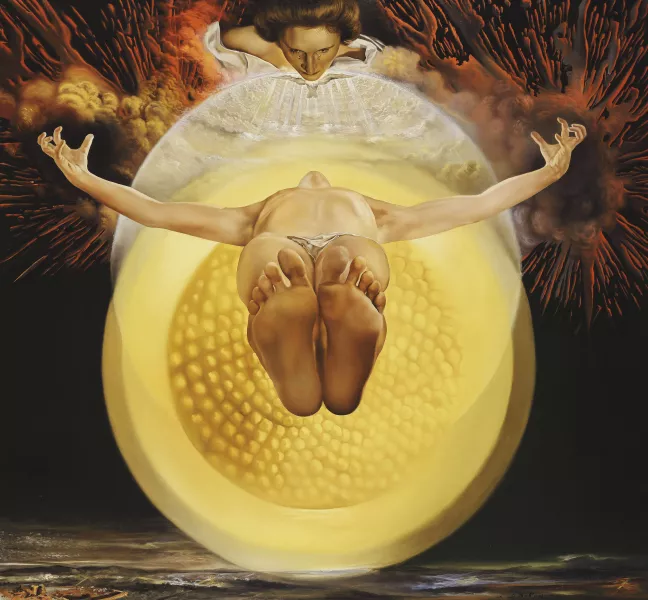
Piétà
Remaining true to his preference for elongated bodies floating in space, Dalí paints the Ascension of Christ more like a levitation than a vertical ascent. The bent fingers of the crucified man enclose the entirety of the universe, which he reunites through his death and resurrection. At the top of the painting, the Virgin in the form of his wife Gala mourns the passion of her son like a Flemish Renaissance Madonna.
Pietà
Salvador Dalí , 1958 , Oil on canvas , 115 x 123 cm , Collection Pérez Simón, Mexico , © Christie’s Images / Bridgeman Images , © Salvador Dalí, Fundació Gala-Salvador Dalí, ADAGP 2023
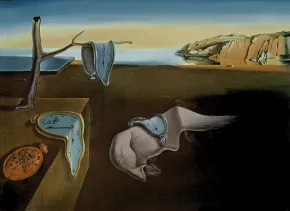
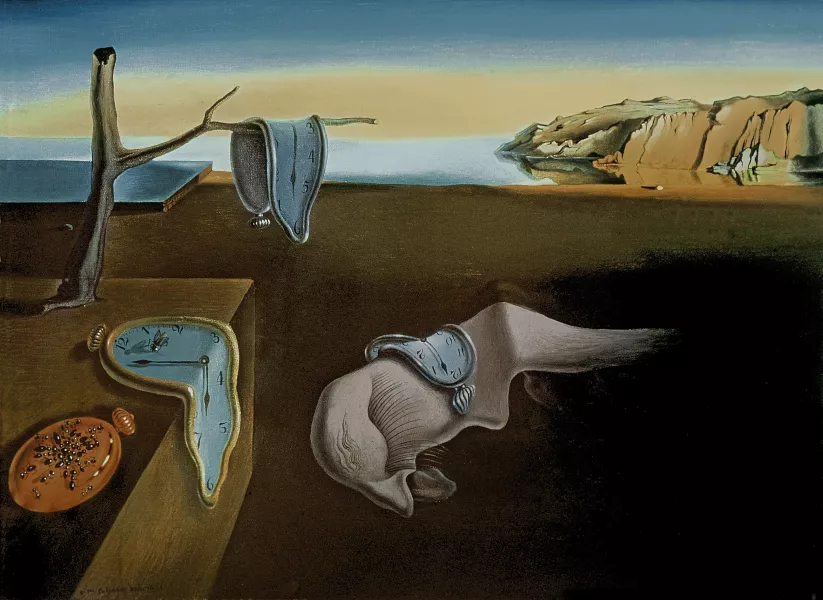
The Persistence of Memory
Who hasn't seen the famous soft clocks by Dalí? This small picture, which is only 33 cm wide and 24 cm high, is considered one of the Spanish painter's greatest masterpieces. It was bought by the American dealer Julien Levy. The work made Dalí famous in the USA and established his fortune. Today it is one of the showpieces of the Museum of Modern Art in New York.
The Persistence of Memory
Salvador Dalí , 1931 , Oil on canvas , 24,10 x 33 cm , The Museum of Modern Art, New York , Bridgeman Images , © Salvador Dalí, Fundació Gala-Salvador Dalí, ADAGP 2023
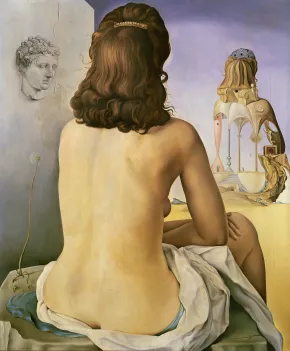
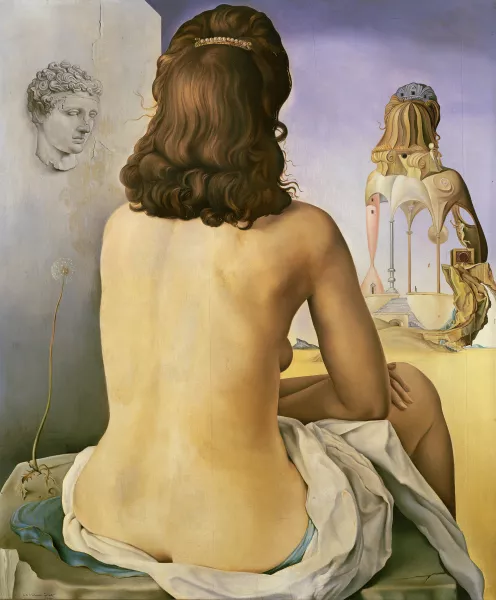
My Wife Nude Contemplating Her Own Flesh Becoming Stairs, Three Vertebrae of a Column, Sky and Architecture
The Venus de Milo, a famous statue from the Louvre, has long been part of Dalí's personal mythology. Naked to the centre of her hips, she fascinated the painter. Is it this shy and yet so erotic approach of the buttocks that disturbs him so much? By turning the pose round, he emphasises the sensuality of the model more than ever, especially as this is his wife Gala. The bust is of course reminiscent of Ingres' Bathers or the famous photograph by Man Ray, in which the female back draws a violin. In front of Gala is another image of her, which is transformed into a staircase. Apart from this detail, the picture almost looks like a preliminary study for a classical work.
My Wife Nude Contemplating Her Own Flesh Becoming Stairs, Three Vertebrae of a Column, Sky and Architecture
Salvador Dalí , 1945 , Oil on canvas , 61 x 52 cm , Private collection , Bridgeman Images , © Salvador Dalí, Fundació Gala-Salvador Dalí, ADAGP 2023
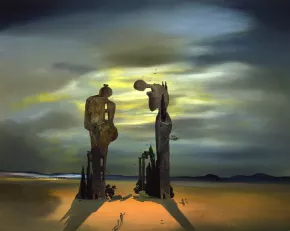
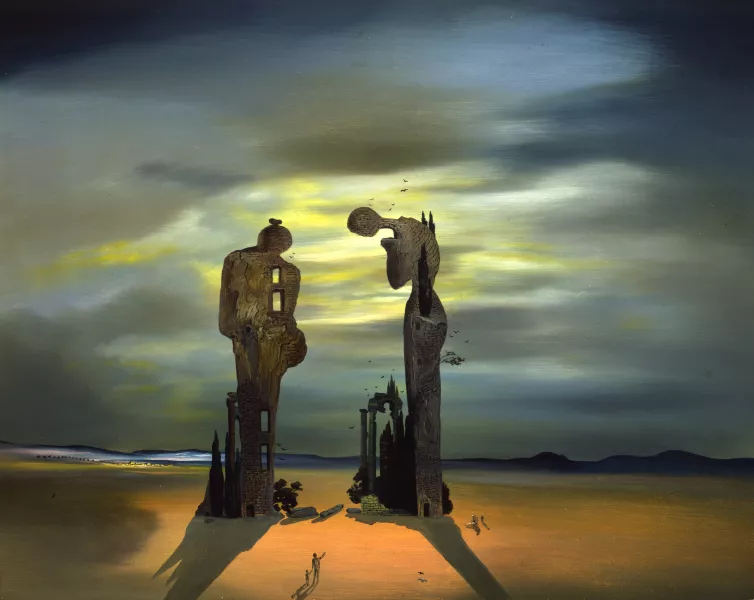
Archeological Reminiscence Millet's Angelus
A very low horizon line, a flock of black birds, a dusky atmosphere and two huge human figures in the centre of the picture. Human, really? On closer inspection, this pair consists of collapsed walls, brambles, cypresses ... a ruin. And at the bottom, two tiny figures emerge: a man who looks like Dalí is holding a child by the hand. They are visiting this desolate rock garden.
Dalí painted a surrealist interpretation of Millet's Angelus, the famous 19th century painting. He was obsessed with this painting and produced 80 different versions.
Archeological Reminiscence Millet's Angelus
Salvador Dalí , Around 1934 , Oil on canvas , 31,75 x 39,4 cm , The Dali Museum, St. Petersburg (Floride) , © Salvador Dalí, Fundació Gala-Salvador Dalí, ADAGP 2023
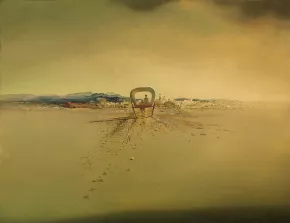
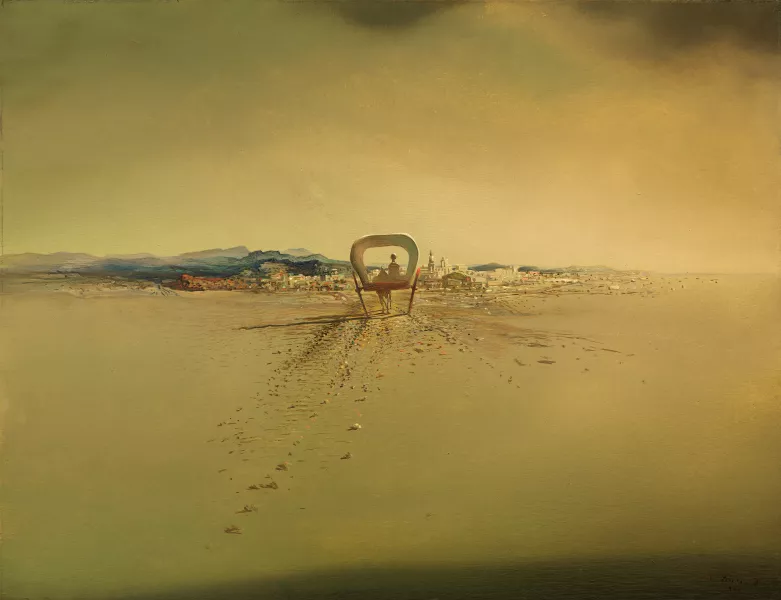
Phantom Cart
In this painting with the colours of an old photograph, Dalí takes us straight into surrealism. Because nothing here is really as it seems. A well-trodden, desert-like path leads us to a town, perhaps Figueras, or perhaps a mirage. Heaven and earth literally merge. The brushstrokes are precise, but the details are almost imperceptible: Dalí wants to lose us in the vastness. The artist's ghost cart has two stiff wheels that are driven into the ground like stakes. It is covered with a tarpaulin attached to brackets and is called a tartane in the Catalan countryside. For Dalí, it is the vehicle of his childhood, which he used on family trips to the Emporda plain. Is there a coachman or is it a tower of the city? The silhouette merges with the distant architecture...
Phantom Cart
Salvador Dalí , 1933 , Oil on canvas , 19 x 24,1 cm , Gala-Salvador Dalí Foundation, Figueres , © Salvador Dalí, Fundació Gala-Salvador Dalí, ADAGP 2023
Extend your discovery

Download our application
This application, available free of charge on the AppStore and Google Play, brings together commentaries on works from our current digital exhibitions. Discover some thirty works from the ‘Dalí, the Endless Enigma’ exhibition at the Phoenix des Lumières in a fun way, thanks to original anecdotes.
Discover also the exhibitions ‘Egypt of the Pharaohs, from Keops to Ramses II’ at the Atelier des Lumières (Paris) and the Carrières des Lumières (Les Baux-de-Provence), ‘From Vermeer to Van Gogh, the Dutch Masters’ at the Fabrique des Lumières (Amsterdam) and the Bassins des Lumières (Bordeaux).

